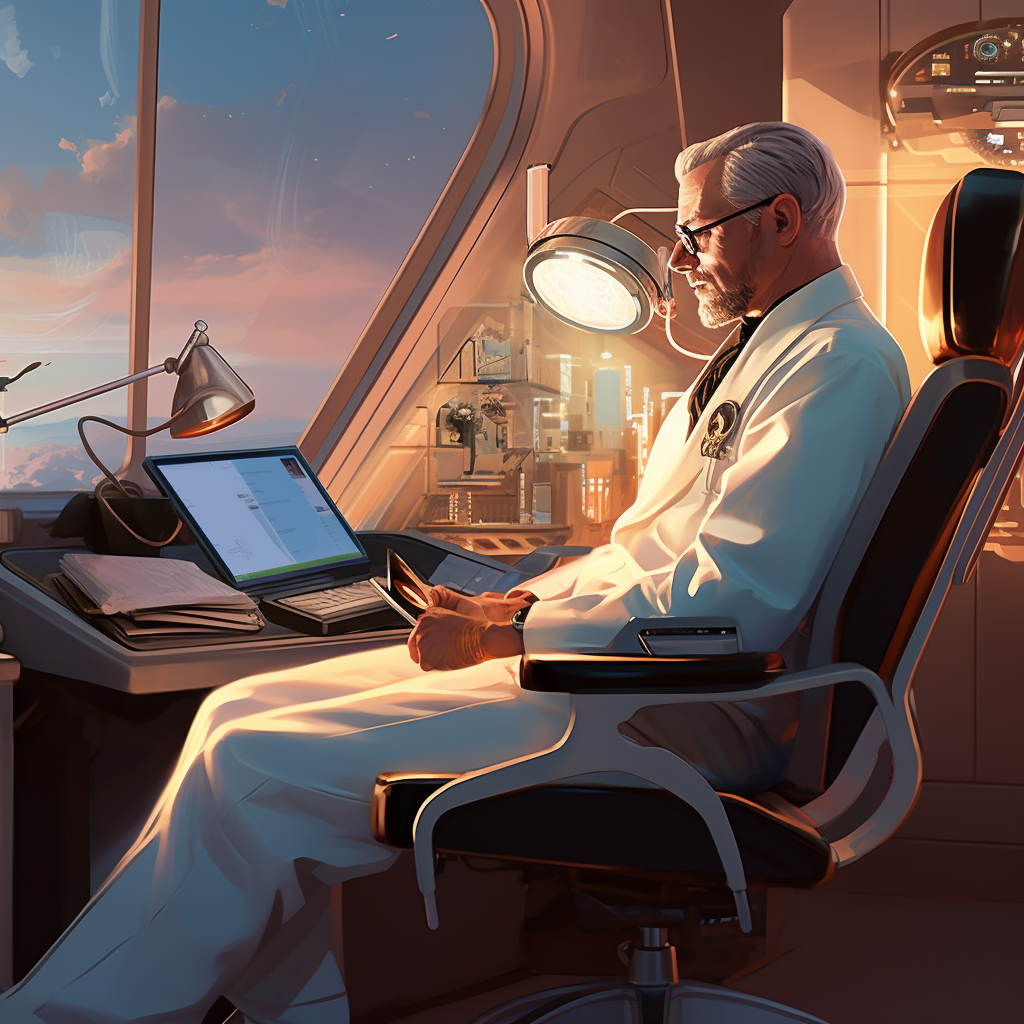Transforming Psychedelic Medicine: The Rise of AI and VR in Ketamine-Assisted Therapy

Ketamine has shown immense potential as a treatment for depression, PTSD and other mental health conditions. But issues like high costs and lack of accessibility prevent many from benefiting from this cutting-edge therapy.
PsychMD, a newly launched telemedicine startup, aims to overcome these obstacles through an innovative model incorporating artificial intelligence and virtual reality. By leveraging the latest advancements in tech, PsychMD delivers customised psychedelic experiences right to patients' homes.
The company was founded by Bryan Henry, PhD in Endocrinology and Reproductive Physiology from the University of Wisconsin, and veteran with firsthand experience of ketamine's transformative impacts. After finding relief from lifelong struggles with depression and chronic fatigue, Dr. Henry made it his mission to share the benefits of ketamine with more people.

Bringing Ketamine Therapy Home Through Telehealth
Dr. Henry was inspired to create PsychMD by the success of his previous telehealth venture, PeterMD. This online men's health clinic provides accessible testosterone and hormone replacement therapy via virtual visits.
According to Dr. Henry, "We realised we could take the telehealth foundation and build an optimised platform for ketamine on top of it."
The PsychMD model represents a radical departure from the status quo of in-clinic intravenous ketamine infusions. Patients receive nasal ketamine spray through expedited shipping. They are monitored during sessions by a dedicated virtual "trip sitter."
This ensures safety and guidance while allowing the convenience of at-home therapy. Geographic and financial barriers are removed, opening up access for a wider range of patients nationwide.

Optimising the Experience Through AI and VR
But what truly sets PsychMD apart is the incorporation of AI and VR to enhance the ketamine experience. Patients are provided with an Oculus Quest 2 virtual reality headset prior to treatment. When under the influence of ketamine, users can immerse themselves in specially designed virtual environments. These three-dimensional worlds evoke a sense of calm through soothing visuals and nature soundscapes.
According to Dr. Henry, "The VR lets you focus on your inner world rather than external distractions during the psychedelic session."
Additionally, patients are guided through their experience by an AI companion. Prior to dosing, individuals set intentions for areas they want to work on like anxiety, depression or chronic pain. The AI then provides personalised prompts and encouragement to help patients achieve breakthroughs.
Dr. Henry explained, "The AI really optimises the therapeutic process. It's like having your own psychedelic coach."

Promising Results for Treatment-Resistant Conditions
To demonstrate the effectiveness of its model, PsychMD conducted a pilot program with 60 veterans dealing with PTSD, anxiety, depression and chronic pain.
After 6 weeks of AI and VR-assisted ketamine therapy, the veterans showed an incredible 98% response rate. Most reported significant improvements in mental health and quality of life. The results exceeded outcomes typically seen with standard ketamine protocols.
PsychMD's pilot provides powerful evidence that incorporating innovations like AI and VR can boost ketamine's benefits, especially for people with treatment-resistant conditions.

Democratising Access to Psychedelic Medicine
By leveraging the accessibility of telehealth along with AI and VR enhancements, PsychMD aims to democratise access to psychedelic therapy. According to some estimates, the current cost per ketamine infusion at specialised clinics ranges from $350 to over $1000.
PsychMD endeavours to slash these prohibitive prices by a third or more. The company also eliminates geographical restrictions through its nationwide virtual platform.
Dr. Henry stated, "Our goal is to help the millions who are struggling by making ketamine therapy affordable and available, no matter where you live." Additionally, PsychMD hopes to expand beyond ketamine to become a comprehensive psychedelic telemedicine provider. As other psychedelic substances gain regulatory approval, the company plans to incorporate options like MDMA and psilocybin.
This aligns with PsychMD's broader mission of catalysing the mainstream adoption of psychedelic medicine. The company intends to leverage all emerging technologies - from virtual reality to blockchain - to responsibly push the industry into the future.

Overcoming Regulatory Challenges
Of course, numerous regulatory hurdles remain. As Dr. Henry acknowledged, "Navigating the complex legal landscape is one of our biggest challenges."
One major issue is the Ryan Haight Act, which restricts the prescription of controlled substances via telemedicine. Fortunately, PsychMD has developed a compliant care model that satisfies the law's stringent requirements.
However, enforcement of the Ryan Haight Act has been lax during the pandemic. The DEA plans to fully reinstate it in November 2023 which could limit telehealth options. PsychMD is working closely with regulators to enable access to psychedelic therapy regardless of the act's status.
Despite these obstacles, PsychMD remains confident that trends towards wider acceptance of psychedelic medicine will continue accelerating.

The Future of Psychedelic Teletherapy
When asked about the future, Dr. Henry declared, "I see nothing but ongoing expansion as more people and regulators realise the immense benefits of psychedelics."
He believes that accessibility, affordability, and research will all drive exponential growth in the coming years. However, Dr. Henry cautions that scaling up responsibly will be critical to avoid sacrificing quality.
Overall, PsychMD provides an exciting blueprint for utilising technology to expand access to transformative therapies like ketamine. By bringing psychedelic medicine into the modern era, companies like PsychMD have the potential to help millions of people lead happier, healthier lives.